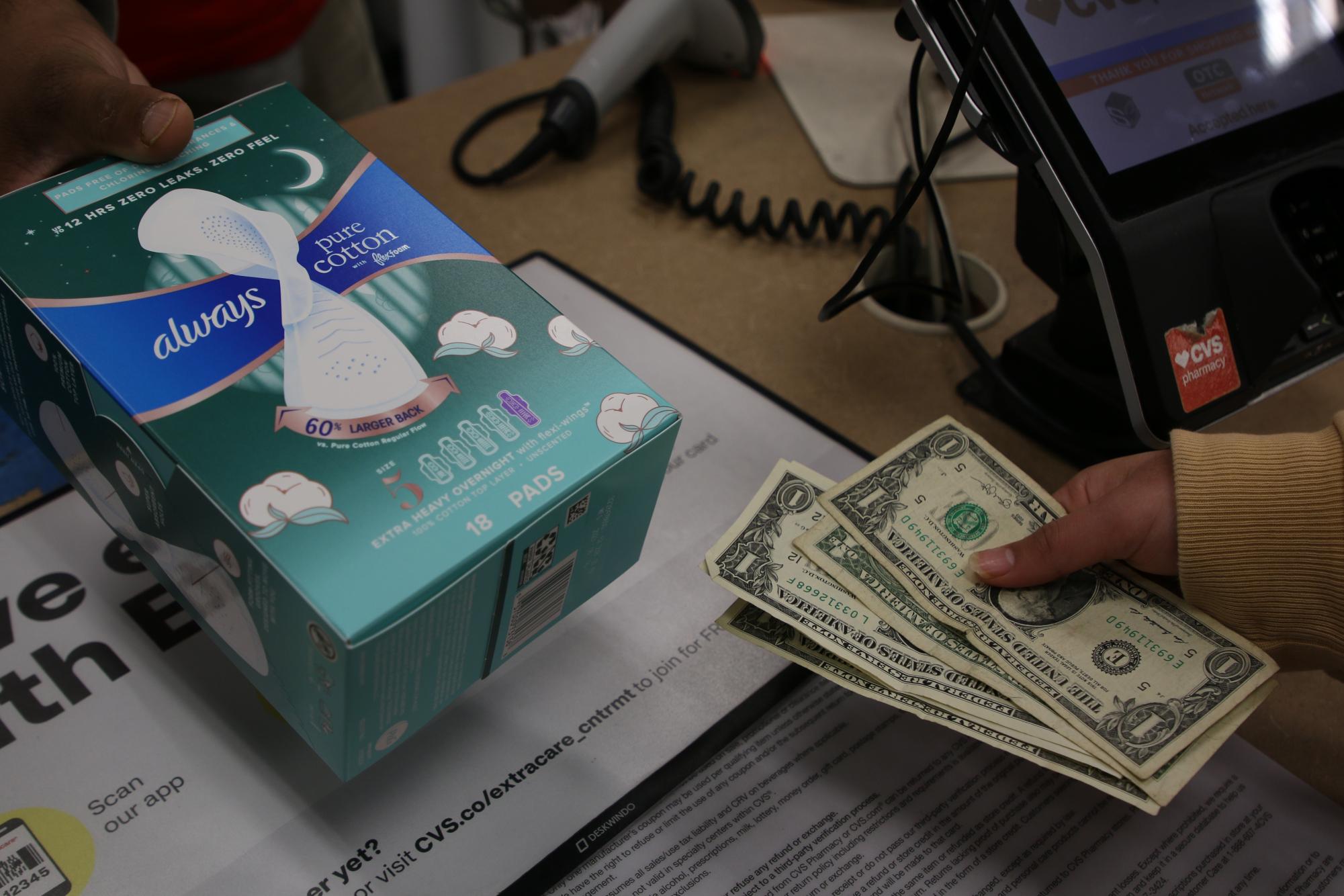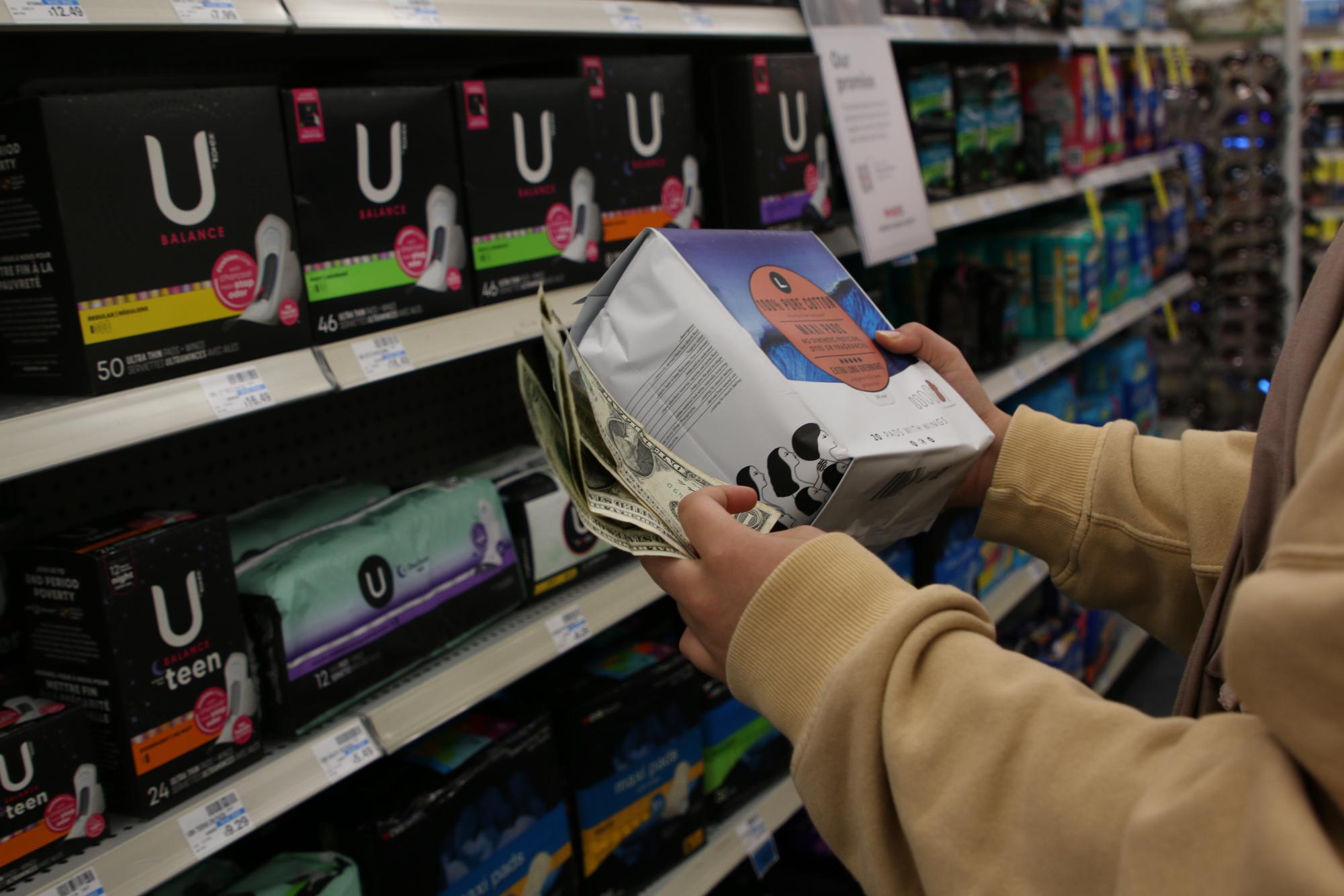Equal flow: ‘Tampon Tax’ removal lifts menstrual inequality


6.25 percent.
Until Sept. 1, 2023, there was an extra 6.25 percent tax in Texas for menstrual products. For every woman, every few weeks, everywhere, a healthcare product was taxed, regardless of its necessity or the millions reliant on it.
Considering an average woman menstruates for about 2,280 days of her life, she would spend approximately $4,752 of her lifetime, not including tax, just on menstrual products.
Already, women worldwide experience monthly financial impoverishment and are unable to afford menstrual care. The U.S. Congress finds that more than half of the U.S. population will likely menstruate every month for decades of their lives and one in four of these women report struggling to afford menstrual products.
This introduces a problem labeled as period poverty, the “insufficient access to menstrual products, education, and sanitation facilities” according to the National Library of Medicine.
‘Tampon Tax,’ the sales tax on feminine hygiene products, further burdens and exploits the medical necessity of menstrual products. This tax was lifted through Senate Bill 379 in Texas, which became the 33rd state to outlaw this tax, creating space for a national movement towards menstrual equality, awareness and acceptance.
The bill became a priority for Texas lawmakers when Roe v. Wade was overturned in June 2022 by the U.S. Supreme Court to support females for the cost of menstrual products. Texas Gov. Greg Abbott joined other Republicans in support of repealing taxes on menstrual products in August 2022.
The law was signed by Abbott in June 2023 and on Sept. 1, Senate Bill 379 went into effect statewide.
Regardless of the economic class a household is in, this bill affects more than just monthly transactions, but creates a new societal perspective on menstruation. Prior to September, while every product under the label of healthcare was not subjected to tax, menstruators paid tax for medical adjustments for health cycles they had no control or choice over.
Now, society and policy have come to terms with this biological phenomenon that affects billions worldwide, and the stigma around it is no longer reflected in the economic pressures of the sales tax.
This begs the question, what does this development mean for the said stigma and what, in American society, was the holdback for this change? Does this mean we are moving towards new, more inclusive political and societal perspectives of women’s right to anatomical choice?
The medical attention needed for menstrual cycles is no longer an exemption to healthcare laws. The thousands of women who have fought over its recognition as a necessity as well as body anonymity have been heard.
For many years in American culture, menstrual products and health were stigmatized. Looking back at the stereotype of blaming emotional women on their period or the normalized stigma of telling young girls to hide their experiences, menstruation-related discomfort that is culturally reinforced is now shifting. As society has accepted menstruation as a biological process requiring reinforcement in equal measures to other medical experiences, women can hope this bill is proof that menstrual cycles will be viewed without a negative, shameful connotation.
This can be the foundation for the acknowledgement of the harmfulness behind the age-old stigmas and can create means for a more inclusive and accepting future.
This shift marks a rise in menstrual awareness and acceptance for open accessibility of menstrual products and feminine development. For example, a new law introduced in Congress this year, the Menstrual Equity for All Act, proposes mandating medicaid coverage of period products.
“Every woman knows that these products are not optional,” Republican Sen. Joan Huffman (Texas) said in a press release.














